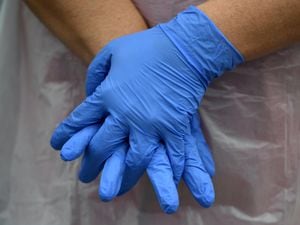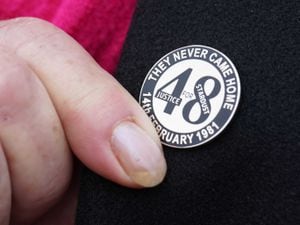Frontline NHS staff given ‘rotten PPE’, committee told
Expiry dates had been covered up on items of protective equipment, the Public Accounts Committee heard.

Frontline NHS staff were given masks with “rotten” elastic and personal protective equipment (PPE) that had already expired, a Commons committee has been told.
Dr Emily McWhirter recalled opening a box of gowns where “a load of insects crept out of them” when giving examples of difficulties around equipment for healthcare workers during the coronavirus crisis.
Members of the Public Accounts Committee gasped when Dr McWhirter, a nurse from the Royal College of Nursing, said expiry dates had been covered up on items of protective equipment delivered to her hospital.
“We did receive some (that) came from that stock and the expiry dates were covered over with new dates because the products were already expired,” Dr McWhirter told MPs.
“So they had put a new date on and they said it was still safe.
“As a leader in an organisation where giving expired equipment, using expired equipment or giving an expired drug, is tantamount to a significant risk.
“It’s an error for nurses and all of a sudden we’re saying to them it’s okay for you to use expired stock for yourselves.”
She added: “It really undermined the kind of safety we try to promote.”
The committee, which has launched an inquiry into the Government’s procurement and supply of PPE, heard evidence from a number of healthcare witnesses on Thursday.
Dr McWhirter, who was director of nursing at the Royal Hospital for Neuro-disability, raised concerns about the quality of equipment – including masks where the elastic was “rotten” and broke when they were used.
“We did receive some stock where the elastic of the masks was rotten and every time you put it on they just broke, you couldn’t use them, they didn’t create any sort of seal,” she said.
“So whilst some stock did come through, some of it was of poor quality and created another layer of complexity for staff to understand why they should be using out of date products.”
Dr McWhirter, who said her hospital had used the NHS supply chain for PPE, told MPs that no guidance had been given on whether expired items of equipment were still working and effective.
She said that the hospital had conducted their own tests on the items, to check if they were water resistant.
“But that’s not a formal process to reassure people,” she added.
Meanwhile, Dr Chaand Nagpaul, chairman of the British Medical Association’s council, told the committee that the body had to set up a 24-hour helpline for doctors concerned about a lack of supplies.
“Because we knew that doctors were panicking about sometimes being asked to go into wards which had coronavirus patients, where they didn’t feel they had adequate protection,” he said.
“And they needed advice and we had to provide that advice as to what to do in those circumstances. They needed advocacy.”
Dr McWhirter said the supply of PPE began to improve at the beginning of May and worked “well” from that point onward – but prior to that she ordered equipment which “just never appeared”.
“And it just fizzled out as the weeks of March went by. Our absolute pinch point with running out was over the Easter weekend,” she said.
“We had enough on Easter Sunday, 12th April, to last me until 7pm. And then I had absolutely nothing in terms of gowns to provide protection for my staff.”
Dr McWhirter, who has 30 years experience as a nurse, said not having adequate PPE for her workforce over Easter weekend meant it was the “most stressful weekend of my entire nursing career”.
“Trying to find equipment to keep my staff safe so that they could look after the patients that we needed to deliver care to,” she told MPs.
“It was absolutely the most frightening thing I have had to do as a nurse.”
The Department of Health and Social Care (DHSC) has been contacted for comment.





